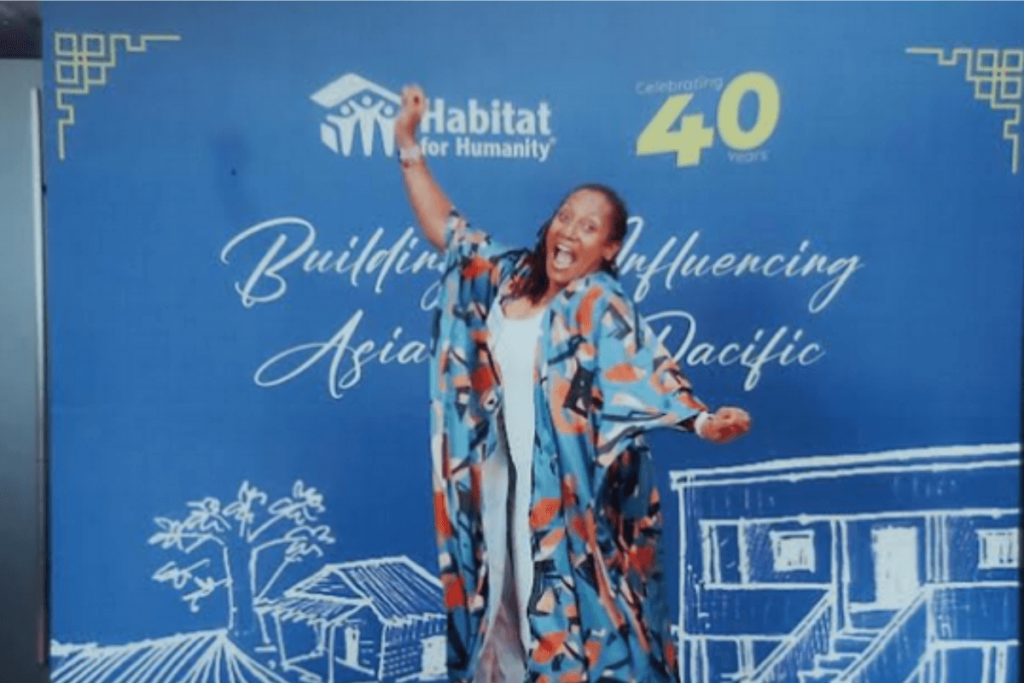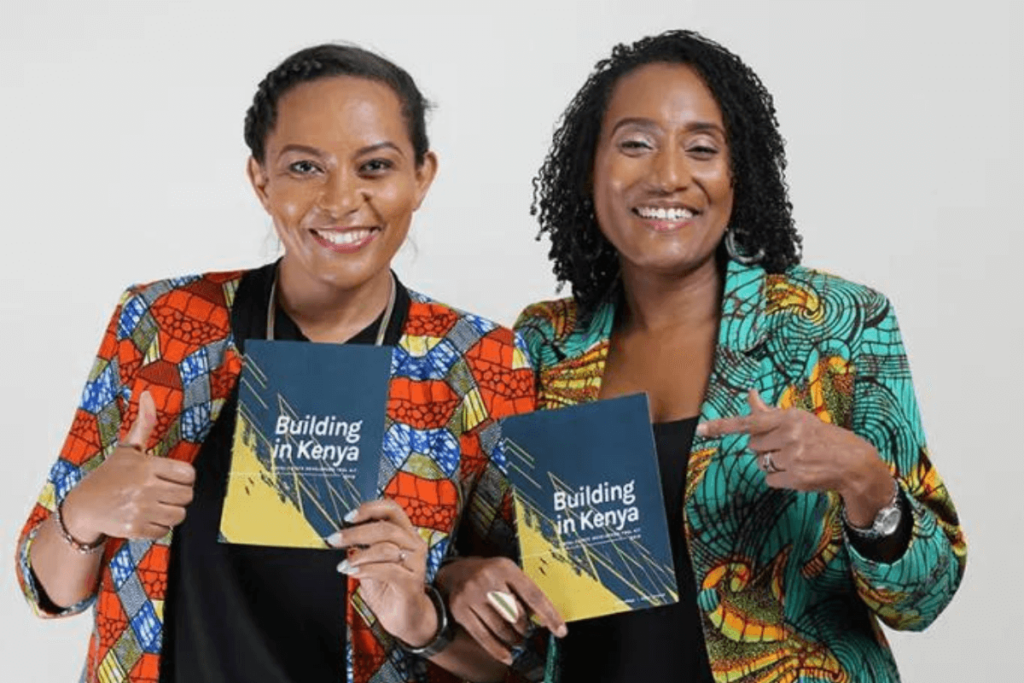Robyn is a self-directed and driven specialist in public policy and advocacy, with a remarkable track record spanning over 25 years. Her comprehensive experience in leading nonprofit charity organizations, fundraising, social enterprises, and urban development has made her a trailblazer in the real estate industry.
With a reputation for innovative thinking and seamless execution in complex settings, Robyn has consistently achieved her goals and ensured success in various projects.
Her expertise extends to developing and managing multimillion-dollar projects, crafting strategic change initiatives, and providing valuable advice to executive leadership. Robyn’s accomplishments speak volumes about her commitment to making a lasting impact.
She co-authored the groundbreaking book “Building in Kenya: A Real Estate Developer’s Toolkit,” which launched in July 2019, revolutionizing the real estate landscape in Kenya. Additionally, she is the Founding President of Women In Real Estate (WIRE), a prestigious organization that empowers and supports women professionals in the industry.
One of Robyn’s notable achievements is championing the development of a 15-acre campus masterplan in Matasia-Ngong, which encompasses a primary school, a secondary school, an orphanage, and a medical clinic.
Robyn has also made significant contributions to governmental initiatives. She spearheaded the training of 40+ senior government officials from various ministries and parastatals as part of the Vision 2030 initiative, playing a pivotal role in shaping Kenya’s long-term development plans.

Furthermore, Robyn facilitated the establishment of Mawe to Maendeleo, a COVID-19 response social enterprise that seeks to improve the livelihoods of domestic workers within the Kilimani area. Her dedication to social impact is commendable, as she actively supports initiatives that uplift marginalized communities.
In her role as a contributor to BuyRentKenya’s property advice magazine, Robyn will share her vast knowledge and insights to guide readers through the dynamic world of real estate. Stay tuned for her expert advice on urban development, social impact, affordable housing, and more, as she continues to inspire positive change and shape the future of Kenya’s real estate sector.
In this interview, Elizabeth Costabir, BuyRentKenya’s CEO sat down with Robyn to have a chat on her journey.
Table of Contents
- How did you become interested in real estate, and what inspired you to pursue a career in this field?
- What are the current trends and challenges you have seen in the Kenyan real estate market?
- How can social enterprises contribute to addressing housing and urban development issues in Kenya?
- You have co-authored the book “Building in Kenya: A Real Estate Developers Toolkit.” Could you share some key insights from the book that would be beneficial to our readers?
- What tips or best practices can you share for individuals or families looking to invest in the Kenyan real estate market?
- What factors should be considered when planning and designing sustainable and inclusive communities?
- How can real estate developers incorporate sustainable practices into their projects?
- How important are collaboration and partnerships between the public and private sectors in achieving affordable housing goals in Kenya?
- Can you share any innovative approaches or technologies that have the potential to transform the real estate industry in Kenya?
- Lastly, where can our readers find more information about your work and how to connect with you for professional advice or consultations?
How did you become interested in real estate, and what inspired you to pursue a career in this field?
I became interested in real estate early on as I witnessed the transformative power it had on communities and individuals. Seeing how access to quality housing and well-planned urban environments could positively impact people’s lives inspired me to pursue a career in this field.
I recognized that real estate could serve as a catalyst for social change and contribute to the sustainable development of cities. This realization sparked my passion for urban development and the desire to create affordable and inclusive housing options for all.
What are the current trends and challenges you have seen in the Kenyan real estate market?
In the Kenyan real estate market, we are witnessing trends such as increased demand for affordable housing, a growing interest in sustainable and eco-friendly developments, and the adoption of technology in property management.
However, challenges like inadequate financing options, limited supply of affordable housing units, and regulatory complexities continue to impact the sector.
READ ALSO: Real Estate Investment Challenges and Strategies for Success
How can social enterprises contribute to addressing housing and urban development issues in Kenya?
Social enterprises play a crucial role in addressing housing and urban development challenges in Kenya by focusing on social impact alongside financial sustainability. These enterprises can provide innovative housing solutions, promote community engagement and participation, and address the needs of marginalized groups.
Additionally, they can offer training and employment opportunities, promote sustainable practices, and contribute to the overall development of inclusive and thriving communities.
You have co-authored the book “Building in Kenya: A Real Estate Developers Toolkit.” Could you share some key insights from the book that would be beneficial to our readers?

Certainly! “Building in Kenya: A Real Estate Developers Toolkit” is a comprehensive guide that covers various aspects of real estate development in Kenya. It provides practical advice on navigating the complex process of property development, including project planning, financing options, regulatory requirements, and stakeholder management. Readers can gain valuable insights into the key considerations and best practices for successful real estate development projects.
READ ALSO: An Exclusive Interview With Emma Miloyo, The First Female President of AAK
What tips or best practices can you share for individuals or families looking to invest in the Kenyan real estate market?
When investing in the Kenyan real estate market, it’s essential to conduct thorough market research, assess the location’s potential for growth, and work with reputable developers or real estate agents.
Understanding local regulations, seeking professional advice, and conducting proper due diligence are also crucial. Additionally, diversifying investments, considering long-term profitability, and keeping an eye on emerging trends can help investors make informed decisions and maximize their returns.
What factors should be considered when planning and designing sustainable and inclusive communities?
Planning and designing sustainable and inclusive communities require careful consideration of various factors. These include creating mixed-use spaces that integrate residential, commercial, and recreational facilities, prioritizing green infrastructure and open spaces, promoting walkability and accessibility, incorporating energy-efficient and environmentally friendly designs, and ensuring social inclusivity by catering to diverse socioeconomic backgrounds. Engaging the local community and stakeholders throughout the process is also vital for creating a sense of ownership and fostering a thriving community.
How can real estate developers incorporate sustainable practices into their projects?
Real estate developers can incorporate sustainable practices by implementing energy-efficient designs, utilizing eco-friendly materials, promoting water conservation, and integrating renewable energy solutions.
Additionally, incorporating green spaces, promoting walkability, and supporting public transportation can enhance sustainability in urban developments. By adopting sustainable practices, developers can reduce environmental impact, improve long-term cost efficiency, and contribute to the overall well-being of communities.
How important are collaboration and partnerships between the public and private sectors in achieving affordable housing goals in Kenya?
Collaboration and partnerships between the public and private sectors are crucial in achieving affordable housing goals in Kenya. The private sector brings expertise, innovation, and financing capabilities, while the public sector provides policy frameworks, land, and regulatory support.
By working together, they can leverage each other’s strengths, optimize resources, and overcome challenges to create sustainable and affordable housing solutions. Public-private partnerships (PPPs) can facilitate the development of affordable housing projects, promote efficient land use, and ensure that housing initiatives align with the broader urban development strategies of the government.
Can you share any innovative approaches or technologies that have the potential to transform the real estate industry in Kenya?
In the real estate industry, several innovative approaches and technologies have the potential to transform the sector in Kenya. These include the use of blockchain for property transactions, smart home technologies for energy efficiency and automation, virtual reality and 3D visualization for property showcasing and design, and sustainable construction techniques such as modular construction and eco-friendly materials.
Additionally, data analytics and artificial intelligence can play a significant role in market analysis, property management, and customer engagement, enhancing efficiency and customer experiences in the real estate sector.
Lastly, where can our readers find more information about your work and how to connect with you for professional advice or consultations?
Readers can find more information about my projects and initiatives on my LinkedIn profile https://www.linkedin.com/in/robyntemerson.
I want to express my sincere gratitude for the opportunity to be interviewed for BuyRentKenya’s “Property Advice Magazine”. It was a pleasure to share my insights and experiences in the Kenyan real estate industry with you and your audience. Thank you for your thoughtful questions and for creating a platform to discuss important issues in our field.
Thank you again for this wonderful opportunity.
READ ALSO: Talking To Moiz Hassanali, A Director At Kings Developers



